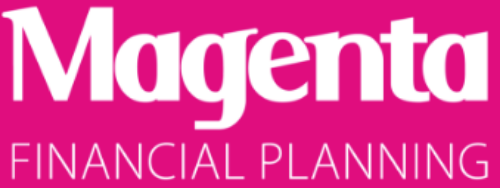Being self-employed has plenty of perks, from choosing our own hours, following our career dreams, and even working from home in our pyjamas.
But one perk we may miss from working for an employer is having a retirement plan through work. Fortunately, there are ways to plan for a secure retirement even without a 9-to-5 job!
The number of self-employed people in the UK is around five million and rising, but the percentage who save into a personal pension has been falling steadily over the past ten years, so that now under a quarter of them are actively building their retirement fund.
The self-employed are notoriously bad at saving for retirement – perhaps telling themselves that they can just keep on working since there’s no-one to force them to retire. But could you really keep up the same pace and enthusiasm into your 70s and 80s? Would you want to?
Why are self-employed people not saving for retirement?
Self-employment puts you in control of your life—but it may require some extra effort to secure a comfortable financial future. There are many reasons why self-employed people don’t get round to thinking about, and making provision for, their retirement and these may include:
• confidence – reports of recent pension scandals and mis-selling
• no time – too busy concentrating on the business
• expectation of working forever
• confusion – misunderstanding of the options available
• “my business is my pension” – hopes of a sale
There are many ways that we can build up financial resources to fund retirement but firstly we must have a plan. Without knowing the sort of lifestyle we want to have when we stop working and how much it will cost, we won’t know how much we need to save and at what rate our savings need to grow to give us what we need.
Planning is key!
At Magenta, this is the first and most important stage of financial planning and is where we focus our initial attention with our clients. Giving clients the right advice to get them where they want to be in life, is our primary objective.
A lifetime cashflow forecast which takes account of all lifetime income, expenditure, assets and liabilities, will allow us to make firm recommendations to clients about what they need to do to secure a happy and comfortable retirement. For self employed clients it also gives them a clear perspective on what they need to do with their business in the intervening years.
Only when we know WHY we want to be saving for retirement can we concentrate on WHAT we need to save and HOW we are going to do it.
There is no question that the earlier we start saving for retirement, the longer our money will have to grow before we need to use it. We know that if you’re self-employed, saving for retirement can be more of a challenge due to inconsistent income and no employer contributions, so a proper, flexible plan is essential.
Do I need a pension if I’m self-employed?
An employer must make pension contributions for its employees by law, however, when you’re self-employed the onus is on you to make provision for your retirement. But why should you invest in a pension, and not something else?
Other options are available (see below), but a pension offers some unique tax benefits that makes it generally the best vehicle for retirement saving. When you contribute to a personal pension, you automatically get tax relief of 20%. If you’re a higher rate taxpayer, you can claim an additional 20% tax relief via your self-assessment tax return.
In addition, all assets held within a pension plan are generally free from Inheritance Tax.
Types of Pension
For the self-employed there are generally 3 contribution options:
Personal/Private pension
Ignoring all the jargon describing this as a “defined contribution” or “money purchase” pension, it is basically a pot into which you contribute money whenever and how much you wish, up to a higher limit (currently £40 000pa.)
Further funds are added by the Government by way of tax relief and other people can contribute too.
The money you contribute is invested in a wide range of assets and funds, according to your attitude to risk and the growth needed to achieve your retirement goals.
When you come to take the benefits at retirement you can take some funds tax free, but all “income” will be taxable.
Self-Invested Personal Pension (SIPP)
A SIPP is a type of personal pension which allows a wider range of investment options to choose from, as well as more flexibility when investing.
The main difference that may be attractive for the self employed is that you can invest in commercial property through a SIPP.
This is particularly useful if you need business premises. You can buy your own premises through your SIPP, and then pay rent which goes into your pension pot.
National Employment Savings Trust (Nest)
This is a workplace pension scheme set up by the Government. Many employers opt for Nest to help their employees build a pension, but self-employed people can also use the scheme instead of setting up a personal pension. Contributions are invested for growth as above.
Other savings options
State Pension
Although self-employed people are eligible for the state pension, the maximum amount you will get is only £185.15 a week (2022/23). This rises every year, but only with or slightly above inflation, so in real terms the value stays roughly the same. It’s unlikely you’ll be able to afford the lifestyle you want if this is your only income in retirement.
To qualify for the state pension, you’ll also need at least 10 qualifying years of National Insurance contributions or credits so self-employed people need to ensure they are paying the correct amounts.
Lifetime ISA (LISA)
These are not pensions. However, they are similar to a pension because they are designed to help you save for retirement (or your first home.) For every £4 you pay in, the government adds £1. You can pay in a maximum of £4,000 a year for a £1,000 bonus, which is added at the end of the tax year. The upside is that the money is already yours, so won’t be taxed when you draw it out. The downside is that you can’t save as much as you can into a pension, and you cannot draw out any money until retirement.
ISA
No generous Government handouts here, but you can invest up to £20 000 pa, choose your own investments, take money out whenever you like and have all the growth tax free. A much more flexible option and one most likely to run alongside a pension plan for maximum flexibility and to provide a tax-free income or capital withdrawals.
General investment account
This is a generic name for any other investment related holdings that are being saved for retirement. The money is not protected from tax like a pension or ISA, but you are allowed to make a profit or gain each year of £12,300 (2022/23) without paying any tax. This needs to be carefully managed to ensure maximum use of all tax allowances.
Cash/deposit accounts
Cash is always useful to have for emergencies or spending due within 12-18 months, but as a long-term investment for retirement it is a very poor vehicle.
This is because interest rates are unlikely to keep up with inflation which means that the buying power of the money declines over time, so the money loses its value.
Property
It is a very British thing to want to invest in property and indeed it brings the advantages of capital growth (but not always) and rental income (but not guaranteed always) so surely it must rate as a good retirement planning asset?
Landlords have had a frustrating time over the past few years, with a tenant fee ban just the latest in a long list of challenges that includes Stamp Duty increases, tax rules that prevent landlords from offsetting mortgage interest payments against their tax bill and tighter lending criteria on buy-to-let mortgages.
Add to this that it is capital intensive, illiquid, tax inefficient and prone to hassle. As such, it’s not necessarily the best investment unless you are able to outsource the management and maintenance as well as ensuring full occupation.
Business sale
We have heard so many people say that they will sell their business and live off the proceeds when they retire. But in our experience, this is a dangerous strategy! So many things could go wrong – poor health, premature death, business failure, no available purchaser, not enough value in the business at retirement, family members wanting to take over at no cost etc.
Our advice is to set up a proper retirement plan using a combination of the flexible vehicles detailed above – if the business can be sold at retirement this is the icing on the cake!
How much should I be saving for retirement?
Well, that depends on what you want to do when you stop working! Your personal Financial Plan will determine what and how you should save for maximum efficiency and security.
If you would like more information about how to save for a secure and happy retirement that allows you to pursue your passions and enjoy your golden years, do call us for a friendly chat.
Please feel free to share this content if you think this could be of interest to someone you know, or your social network, via the buttons below.

